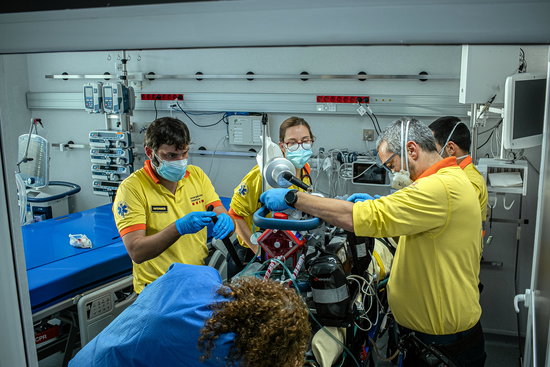The recent advisory issued by the Centre regarding cellphone and jewellery use in the ICU is a necessary step towards ensuring infection control and patient safety. As responsible citizens, we must comply with these guidelines and support our healthcare workers who work tirelessly.

The recent advisory, issued by the Central Government, recommends that healthcare workers in ICUs refrain from using cell phones and all types of jewellery below the elbow while on duty. This may seem like a trivial matter, but it has significant implications when it comes to infection control and patient safety.
The primary reason behind this advisory is to minimise the risk of cross-contamination in the ICU. In a high-stress environment like an ICU, healthcare workers are constantly in close contact with critically ill patients who may have weak immune systems. As a result, they are at high risk of catching infections and spreading them further.
According to the TOI report, the Director General of Health Services (DGHS), Atul Goyal said that the step has been taken in response to existential evidence that suggests there is a higher chance of total skin microorganism counts when hand jewellery is worn below the elbow. He wrote on April 19 that using a phone while on duty raises the danger of infection, particularly in crucial settings like ICUs, HDUs, post-operative wards, and operation theatres.
The step has been taken based on some existential evidence which shows that wearing hand jewellery below the elbow increases the risk of total skin micro-organism counts. In a letter released on April 19, he stated that using mobile phones during duty, especially in critical areas like ICUs, HDUs, post-operative wards and operation theatres, increases the infection risk.
Why cell phones and jewellery cannot be used in ICUs?
Cellphones, being one of the most frequently used personal devices, have been found to carry a significant amount of microbes including bacteria, viruses, and fungi. These microbes can easily transfer from cellphones to healthcare workers’ hands and then onto patients or other surfaces in the ICU. Additionally, cell phones are often placed on various surfaces, including bedside tables and medical equipment, which can further increase the risk of contamination.
Similarly, jewellery such as rings, bracelets, and watches can also harbour harmful microbes and pose a risk of infection transmission. Healthcare workers wearing jewellery may inadvertently touch their faces or adjust their jewellery while attending to patients, increasing the chances of cross-contamination.
The importance of hygiene and SOPs
Goel recommended that hospitals update their hand hygiene SOPs (standard operating procedures) to include a clear statement on when and where wristwatches are allowed. This is because there have been instances in the past where patients’ serious health problems following surgery were caused by the doctor’s negligence.
Healthcare personnel are required by law to take off jewellery, including watches, religious threads, bracelets, bangles, and rings.
India carries the highest burden of hospital-associated drug-resistant infections
Antibiotic Resistance: Addressing a Global Threat to Humanity, a new publication, claims The largest number of hospital-associated drug-resistant infections (HARIs) is seen in India. There are 136 million HARIs worldwide each year, with China, Pakistan, and India having the greatest rates.
Serious infections that individuals get while receiving treatment for illnesses or surgeries are known as hospital-associated infections. These are the most prevalent and complex infections that occur in the medical environment. Furthermore, longer hospital admissions, higher healthcare expenses, and higher rates of morbidity and mortality have all been linked to these infections.
Courtesy: IndiaTV




